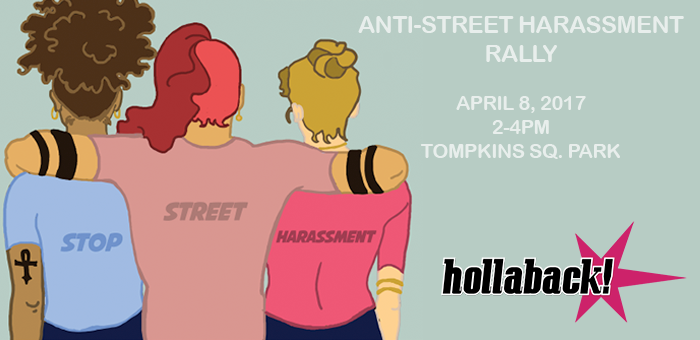Elaine Crory, Belfast, Northern Ireland, SSH Blog Correspondent
A striking image taken in the city of Birmingham, England, went viral this week; a young woman, Saffiyah Khan, facing down a man from the far-right, xenophobic English Defense League (EDL). In the photo we can glimpse at least two EDL members, their jaws set, chins tilted up, they appear to be speaking to – or shouting at – Khan. We can also see a Police Liaison Officer, speaking to one of the EDL members. The young woman, however, is smiling serenely at the enraged man who is addressing her.
The image captured imaginations, and the story behind it is one activists can learn much from. It transpires that Khan was a bystander who stepped up to defend another woman, young British Muslim Saira Zafar, who was surrounded by EDL members, shouting at her to go back to where she came from. Both Khan and Zafar, not coincidentally, were born and raised in Birmingham. Birmingham is a large and diverse city, an industrial giant in its time, exactly the sort of place that the EDL believe is theirs, given their stated aim to whip up tensions between the Muslim population and the white population. With a smile, Khan showed them how wrong they are.
Bystander intervention is one of those things that anti-street harassment activists have been advocating for a long time. In surveys, most people who have experienced public harassment have said that they wish someone had intervened on their behalf. It doesn’t happen much, though. It’s not hard to see why in a way, sometimes it seems dangerous, sometimes we’re in a hurry, the whole thing is more trouble than it’s worth. At the most basic level, though, I suspect it’s because we are raised in a world that puts individual before community always, or that sees community as something narrow and divisive, us’uns versus them’uns, in local Belfast parlance.
But things have shifted recently. After the Brexit vote in the UK, there was an immediate increase in hate crime incidents. After Donald Trump’s victory in the U.S. Presidential Election, sexist and xenophobic incidents increased, many citing Trump’s victory as evidence that “political correctness” had been defeated. One U.S. politician was arrested for grabbing a female colleague, pinching her genitals from behind, reminiscent of the president’s infamous “grab her by the pussy” comments. He did so after arguing with the woman in question and saying, “I love this new world. I no longer have to be politically correct”. The far right is on the march all across Europe, and while Geert Wilders was defeated in the Netherlands and Marine Le Pen looks likely to lose the French Presidential election, the levels of support they have found is worrying, and it is spreading.
In this new world where racists, xenophobes, homophobes and misogynists feel emboldened, we can no longer stand by when people get assaulted and harassed daily on the grounds of race, gender and LGBTQ+ status. This is this generation’s great activist moment; in the words of Saffiyah Khan, interviewed along with Saira Zafar a few days after the incident, “there’s no excuse to be doing nothing”.
We must educate ourselves about intersectionality, too, and understand that oppression often thrives where identities intersect, making a woman of colour more likely to be targeted than a white woman, for instance. When we speak of bystander intervention, we often urge male allies to be aware of their power to step in and divert harassment, and to speak to their peers about the sexist attitudes that underpin street harassment. This applies to all of us; we must be aware of how and where we wield power, when our actions might have most impact. And once we have armed our minds, we must be willing to act.
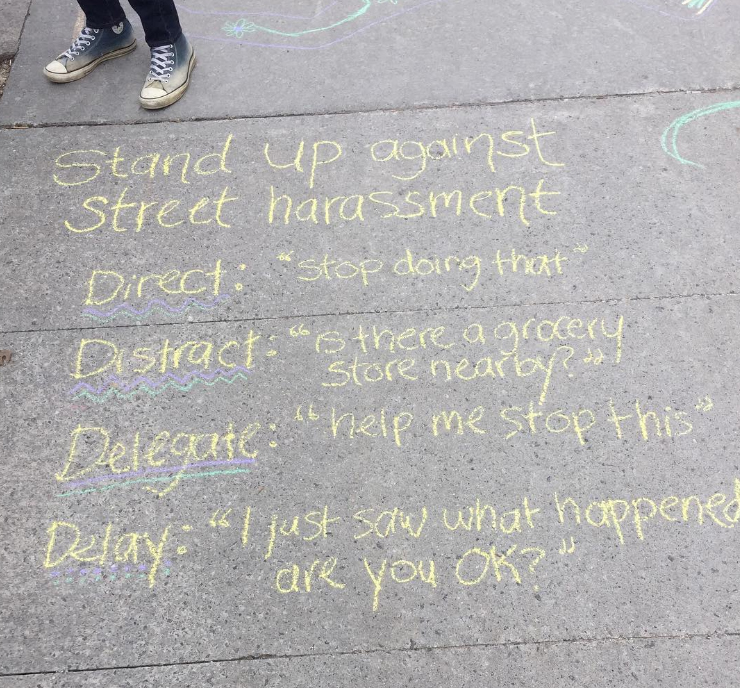
Hollaback! is currently hosting online webinars on bystander intervention, and you can sign up here. They have also produced useful infographics that we can learn from and share in our networks, summarising briefly the basics of bystander intervention; the 5 D’s:
- Direct – directly confronting or addressing harassers, as Khan did, provided it’s safe to do so
- Distract – get in the way, ask for directions, speak to the victim about something other than what’s happening
- Delegate – ask for assistance from a third party, a security guard or transport worker for instance
- Delay – after an incident has happened, check in with the victim, ask if they need any help, etc
- Document – use your phone to photograph or video what is happening, and make sure you approach the victim with your record to see if or how they want to use it
This is necessarily brief, and the tip of the iceberg. During International Anti-Street Harassment Week, activists the world over shared inventive ways of tackling the problem. The goal now must be to spread the knowledge, widen the practice, and stand up against the tide of hatred which challenges the progress we have made as a society. Psychologists have long observed the “bystander effect”, whereby the probability of a victim being helped is inversely proportional to the number of people who witness the abuse or harassment. Saffiyah Khan bucked that trend, standing up to a gang of thugs in the midst of a large crowd with nothing but a smile and the power of being on the right side of history. We can, indeed must, learn a lot from her.
Elaine is a part-time politics lecturer and a mother of two. She is director of Hollaback! Belfast, co-organises the city’s annual Reclaim the Night march, and volunteers with Belfast Feminist Network and Alliance for Choice to campaign for a broad range of women’s issues.

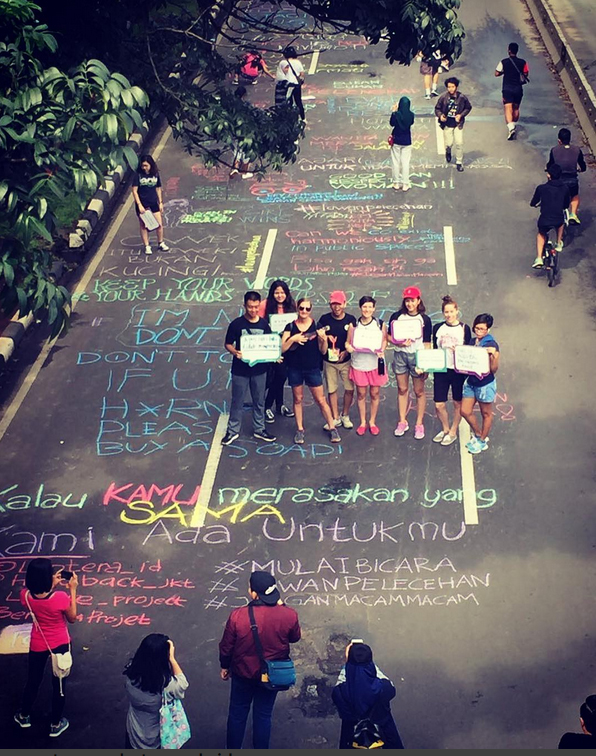
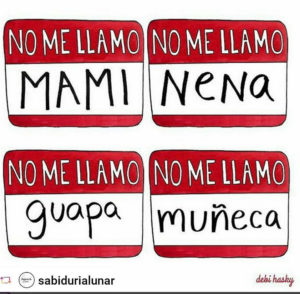 You can
You can 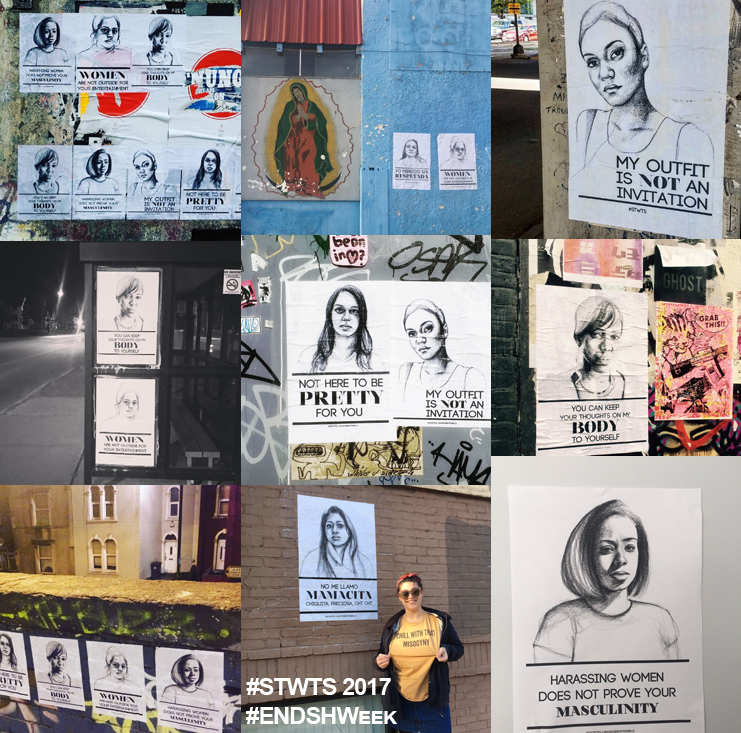
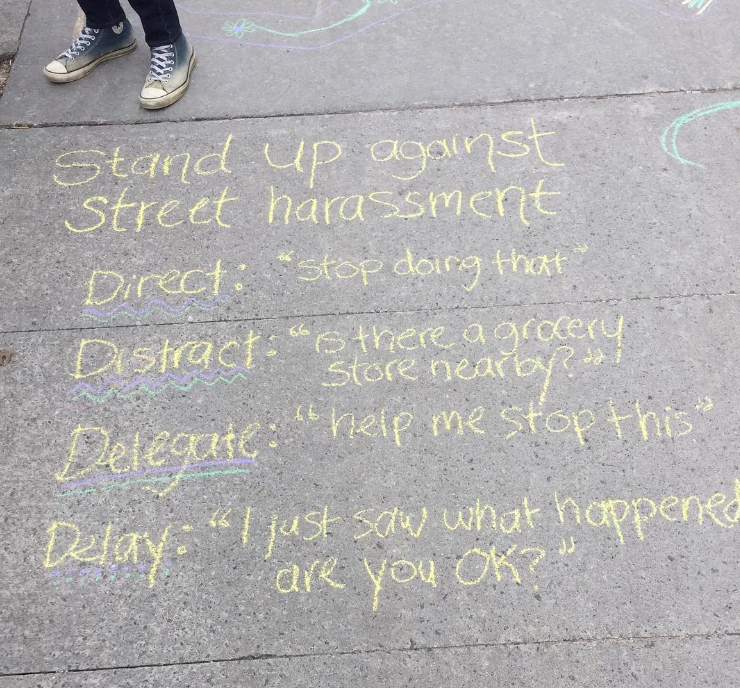
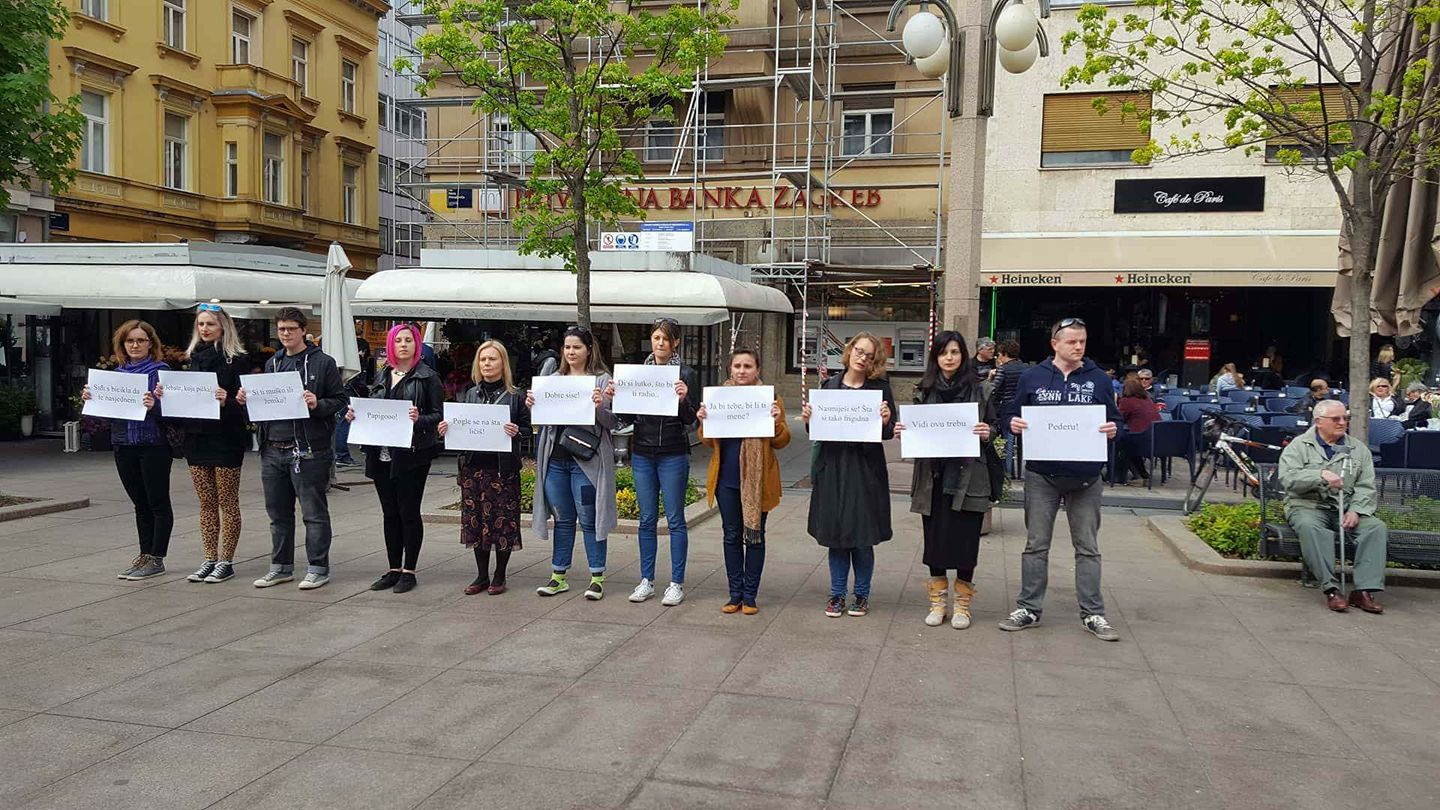
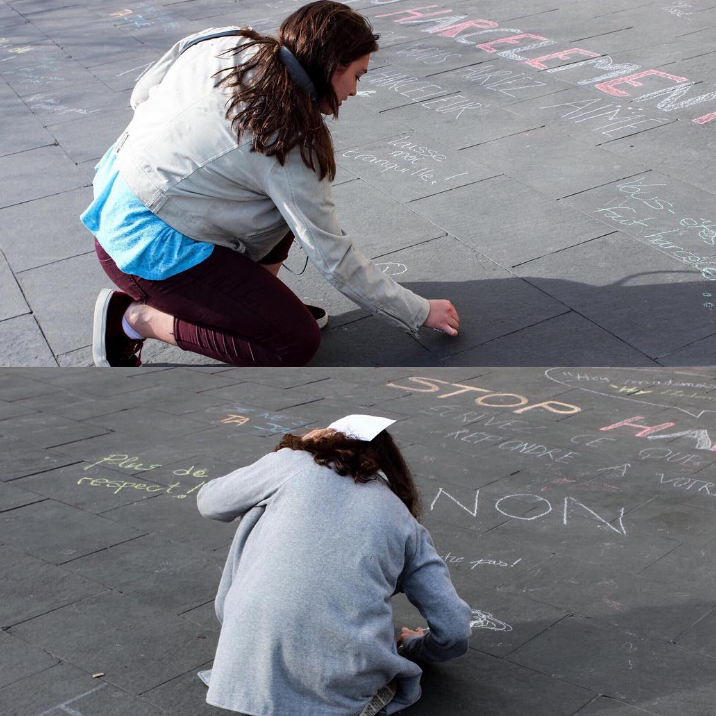
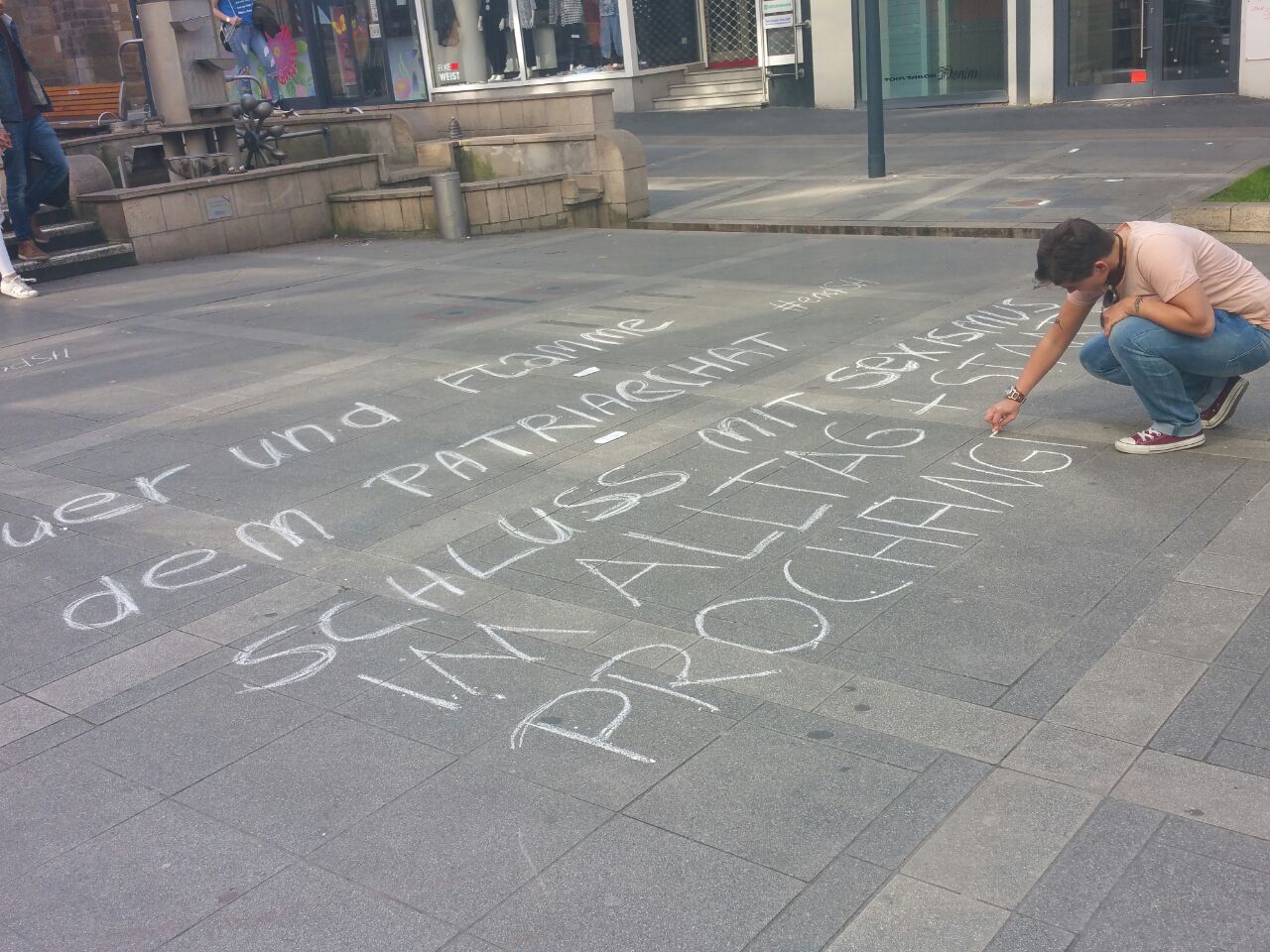
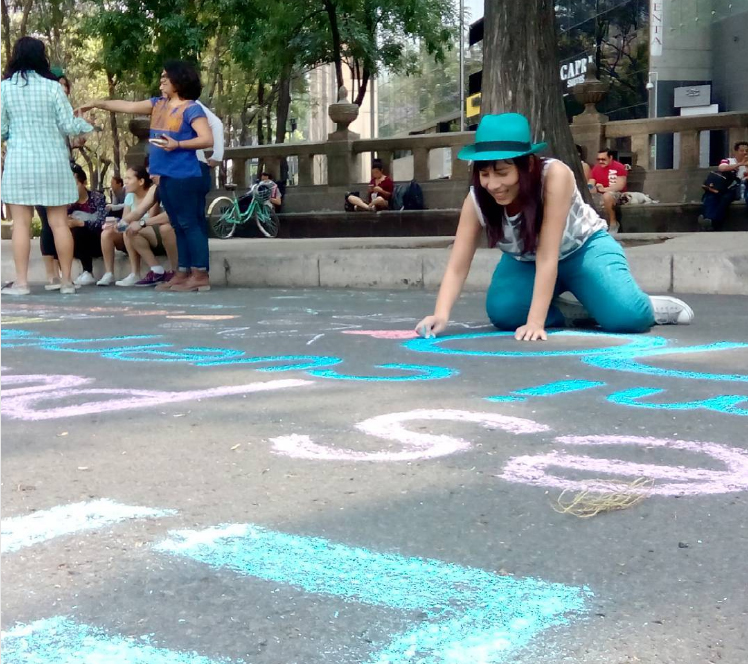
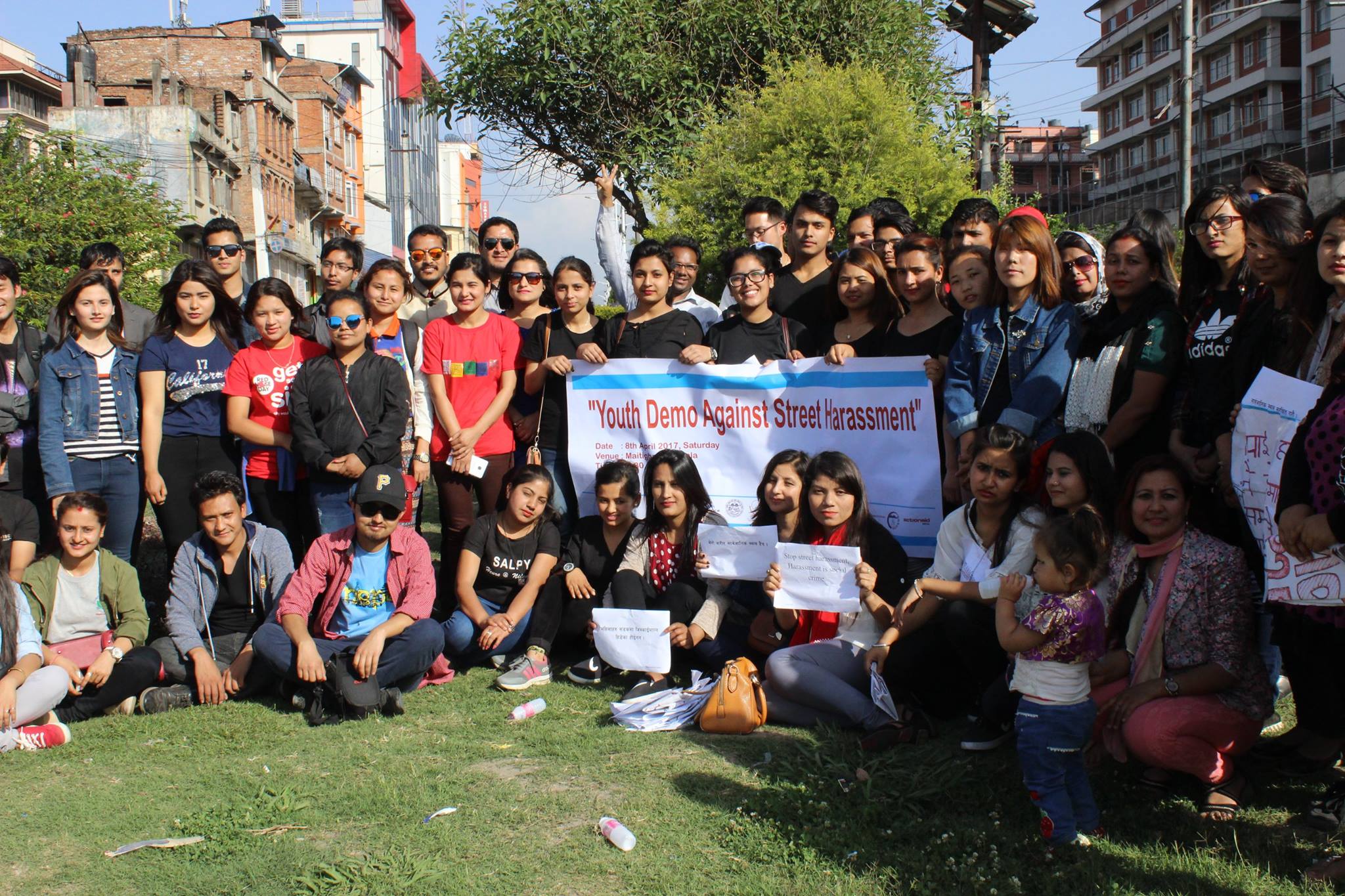
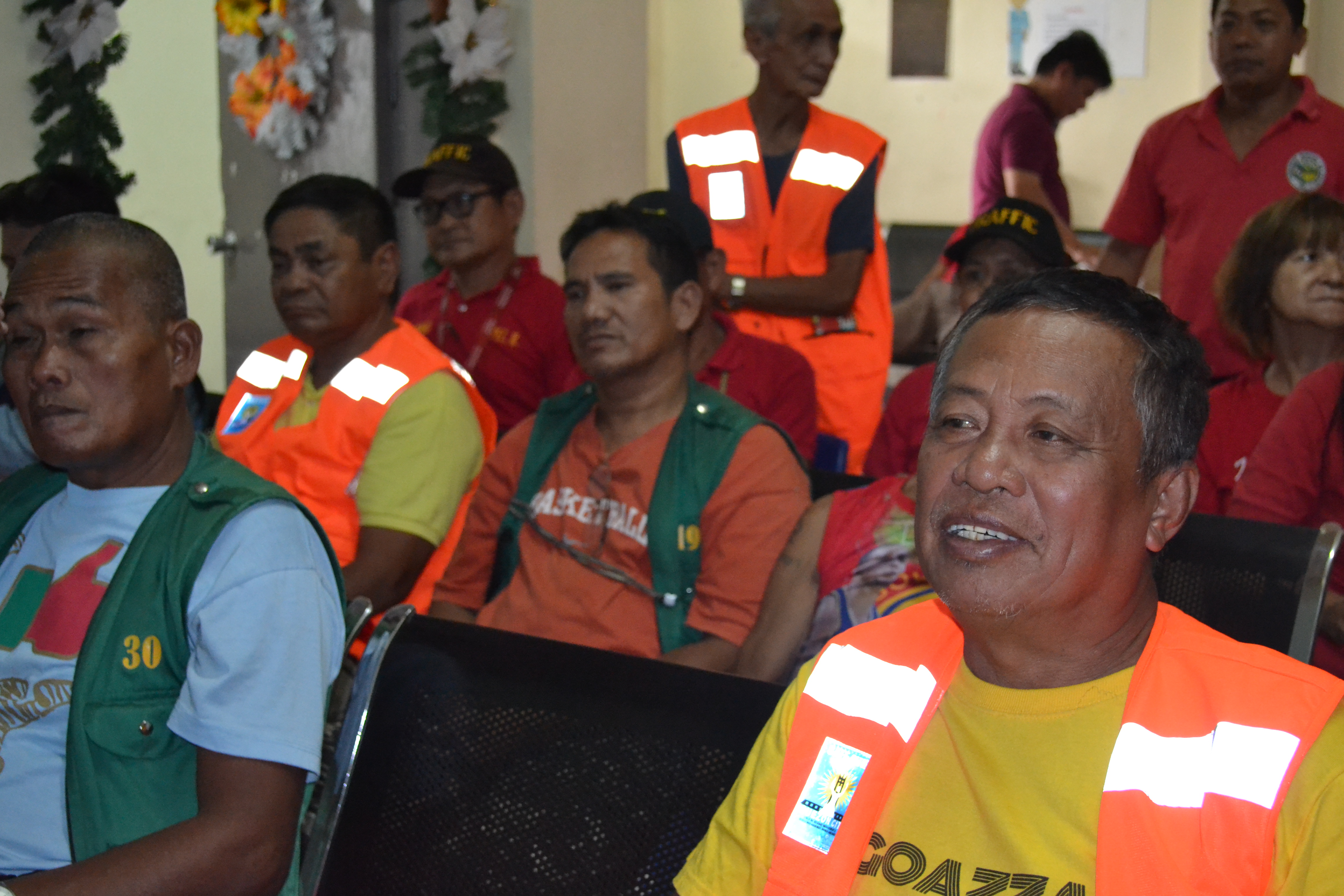
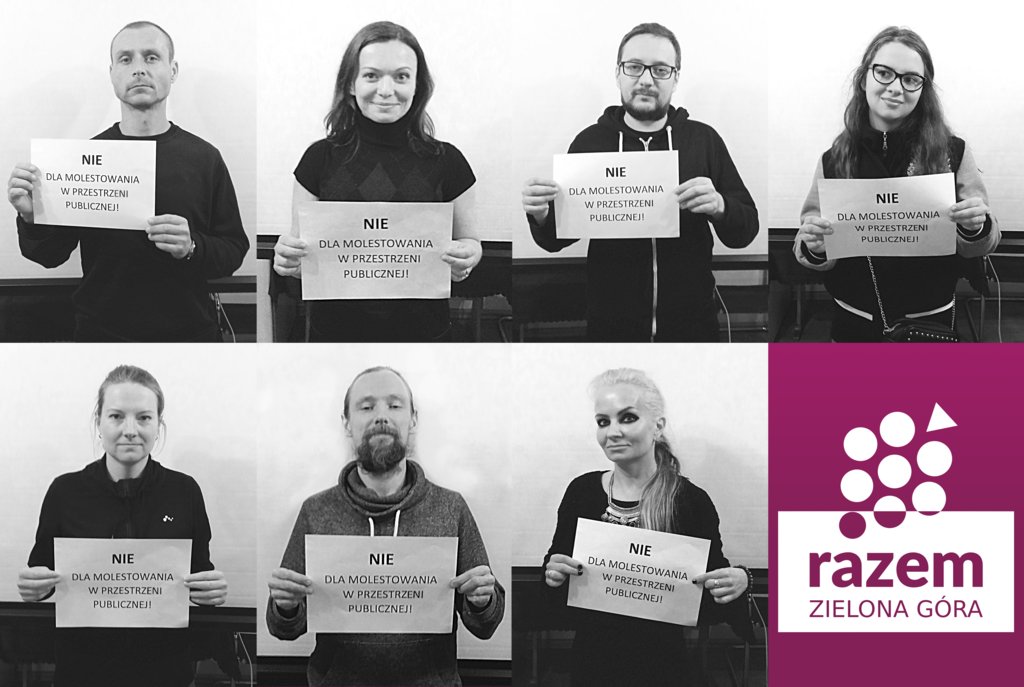
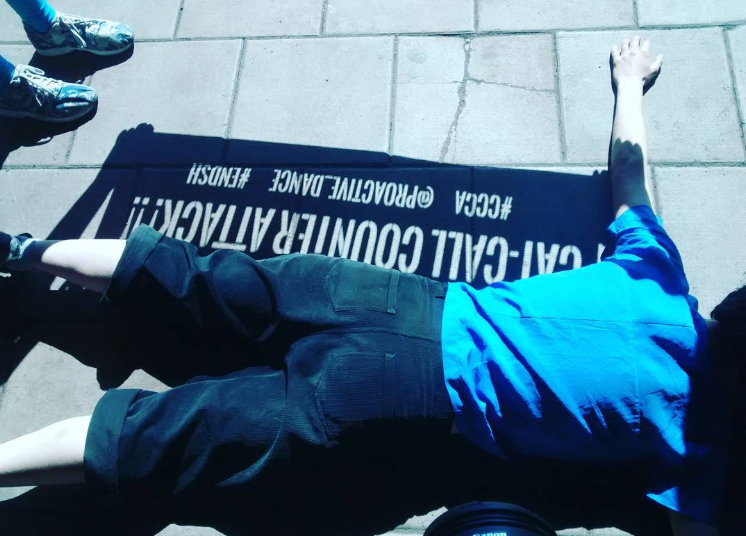
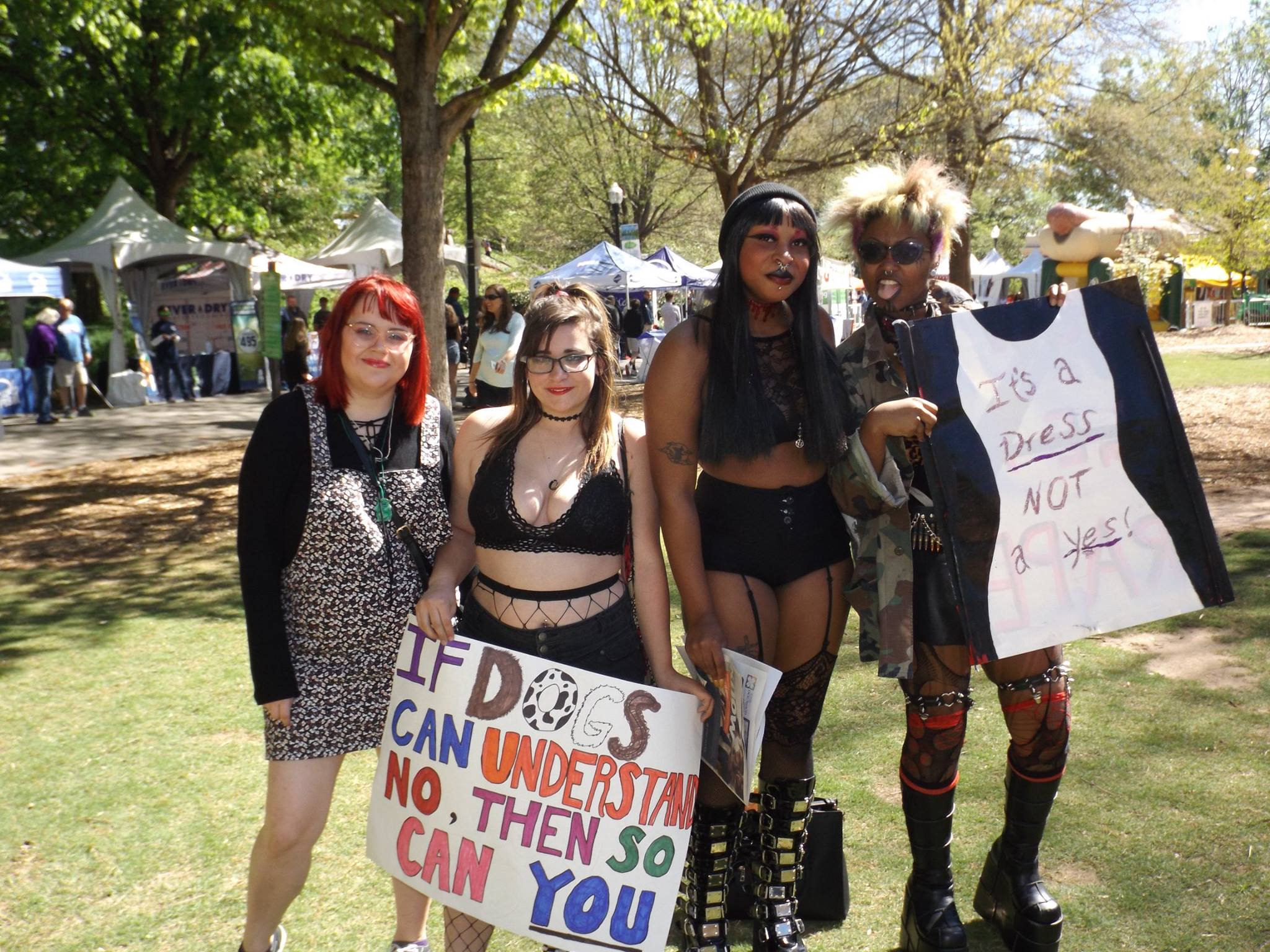
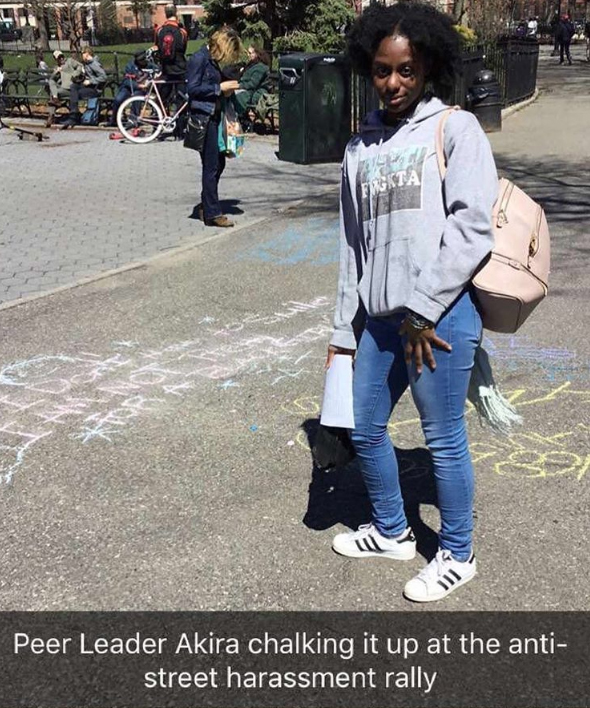
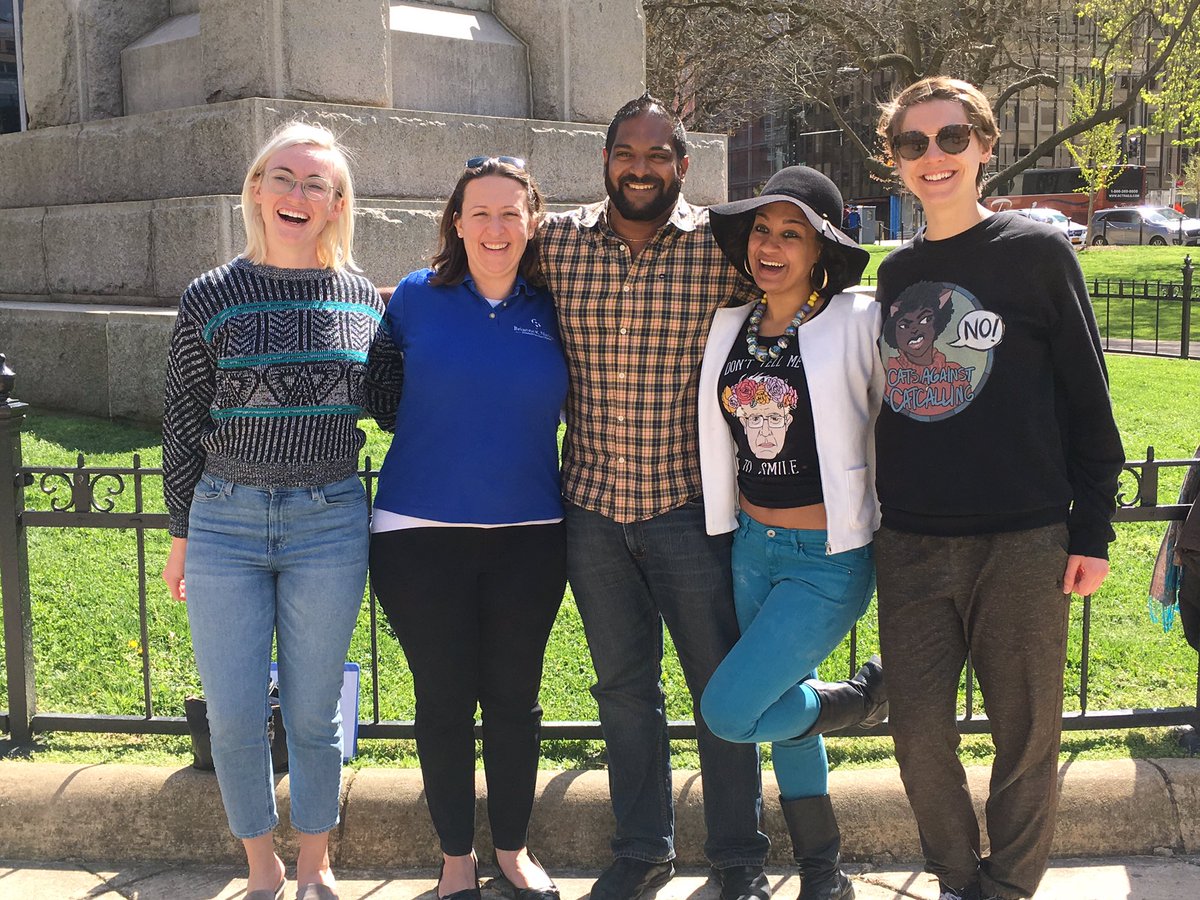
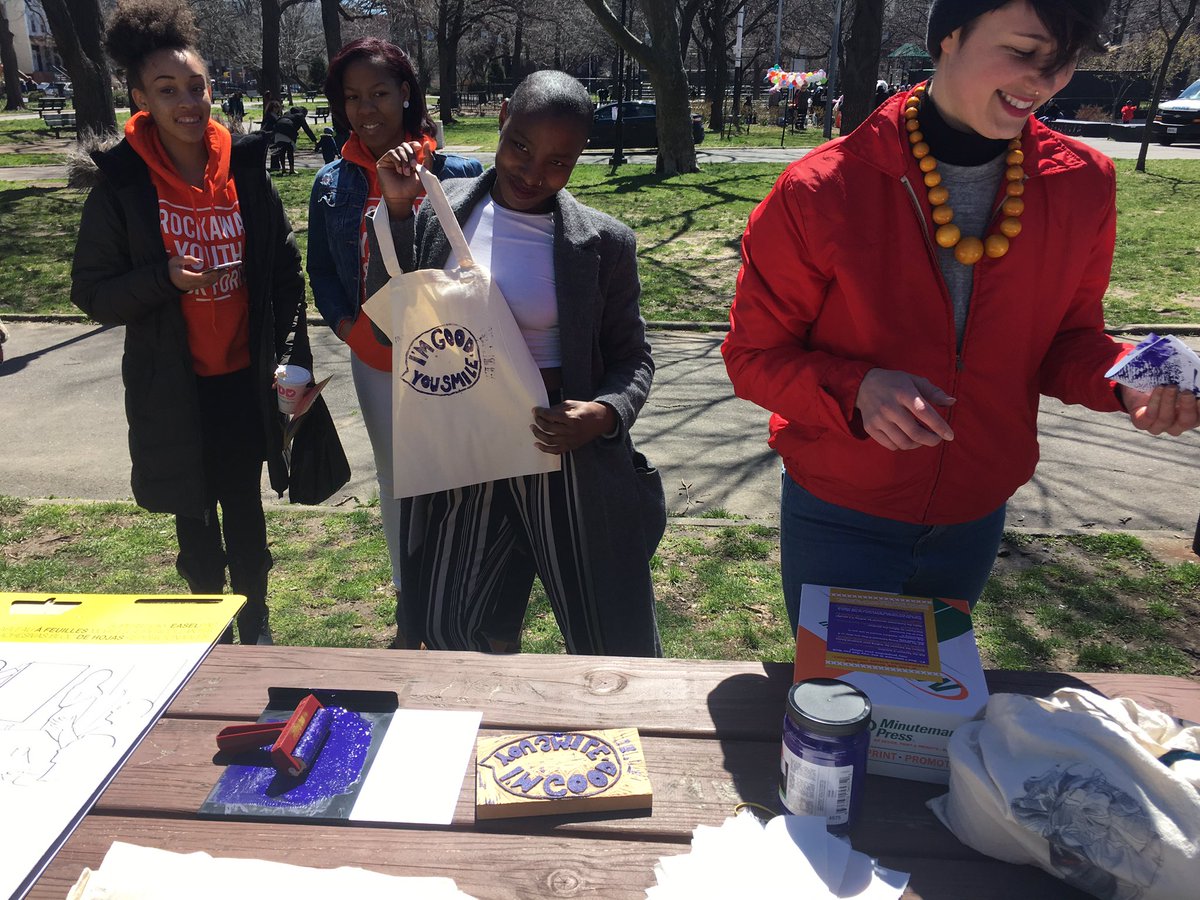
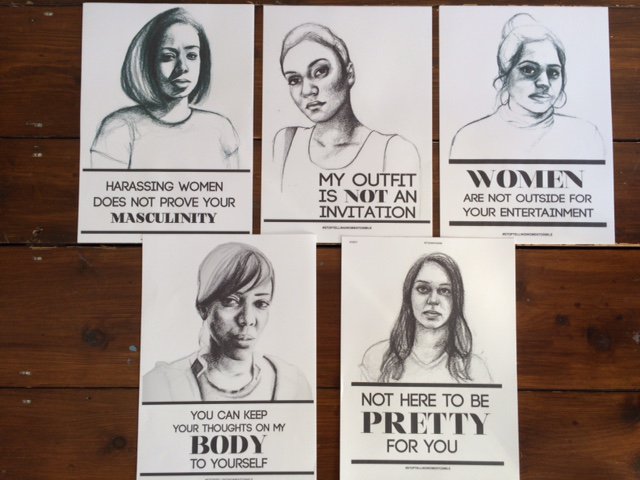
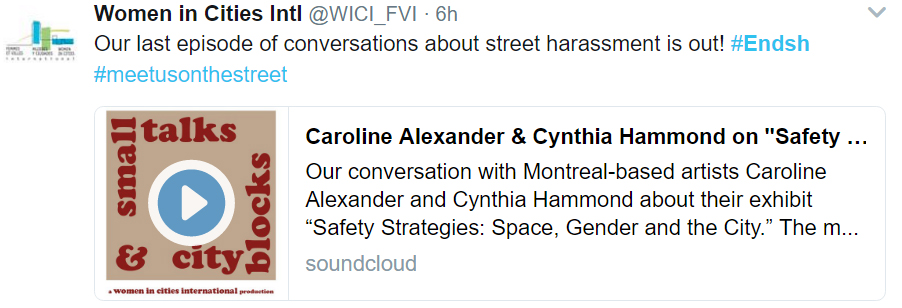
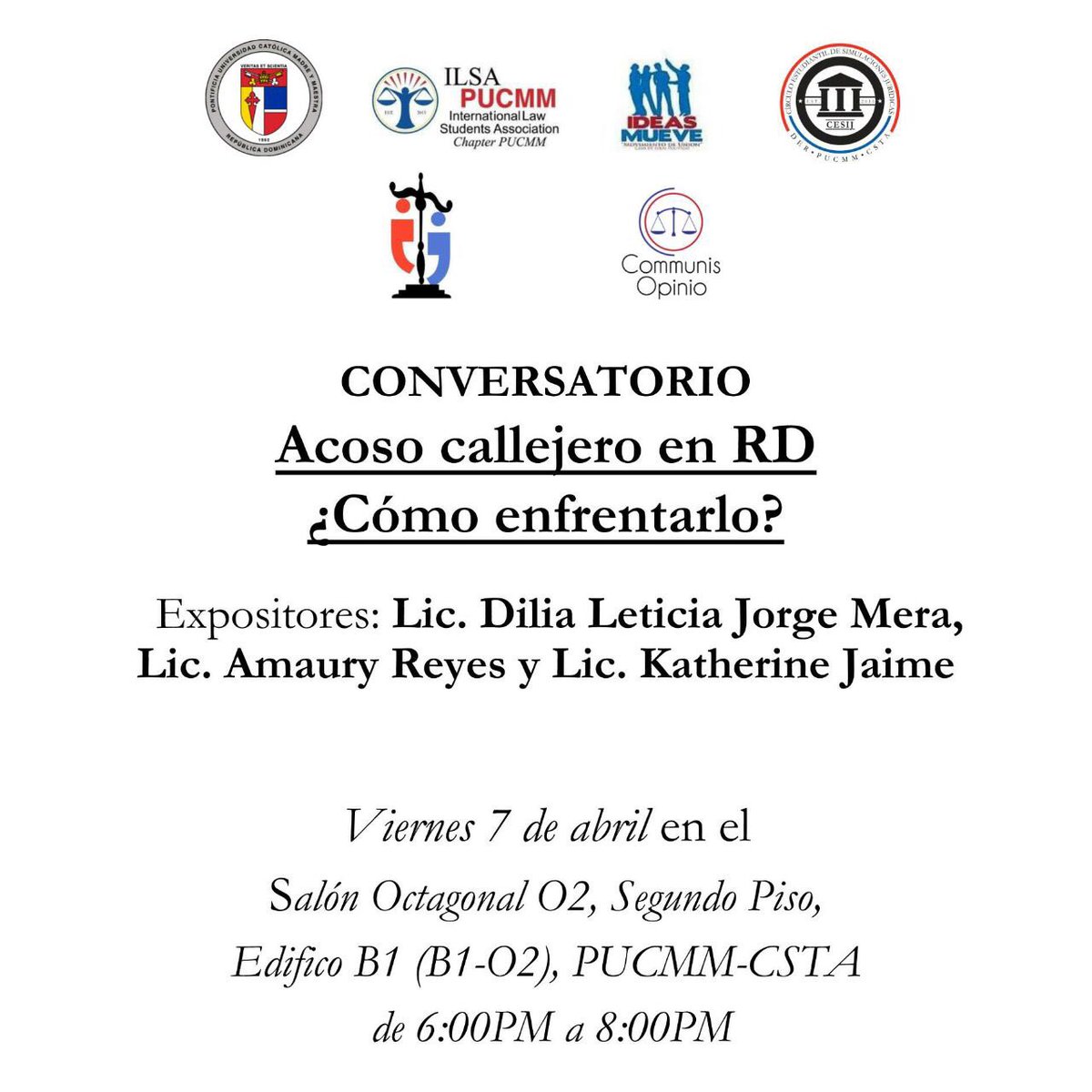
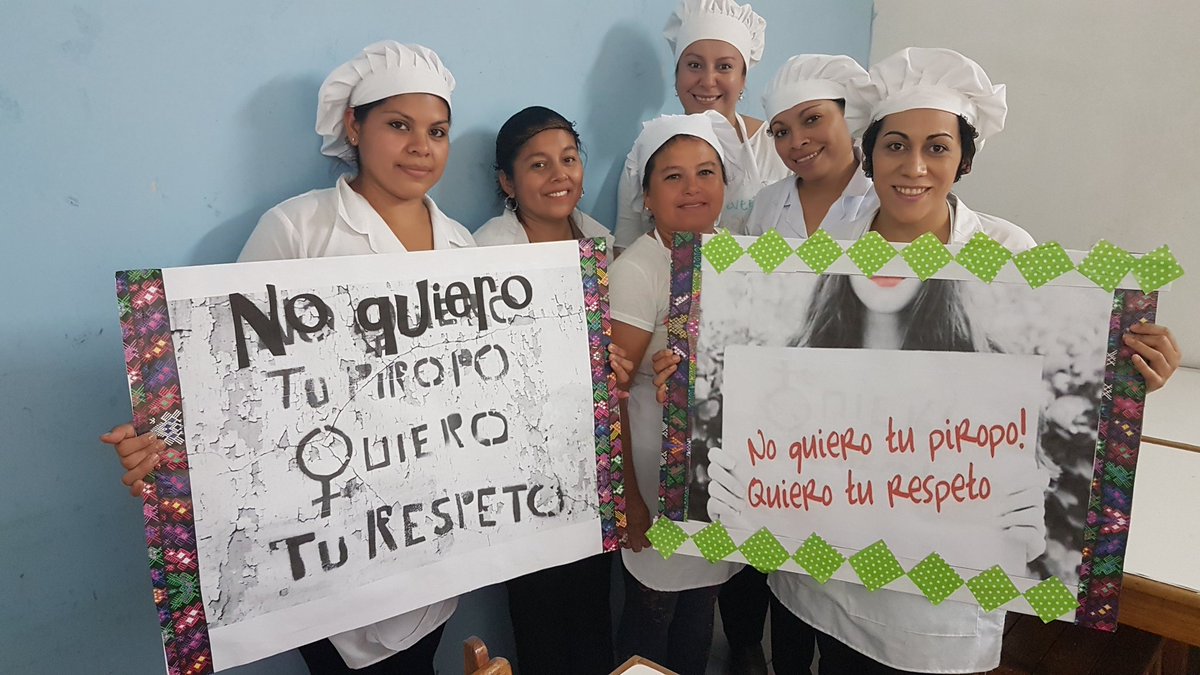
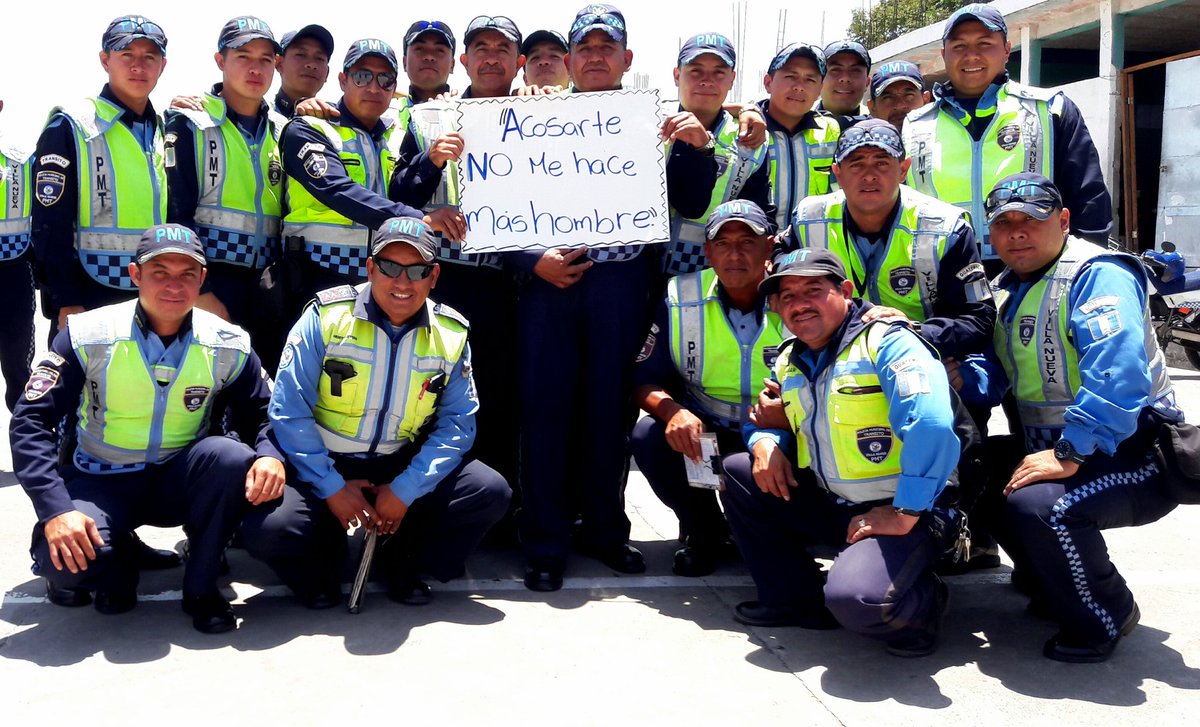
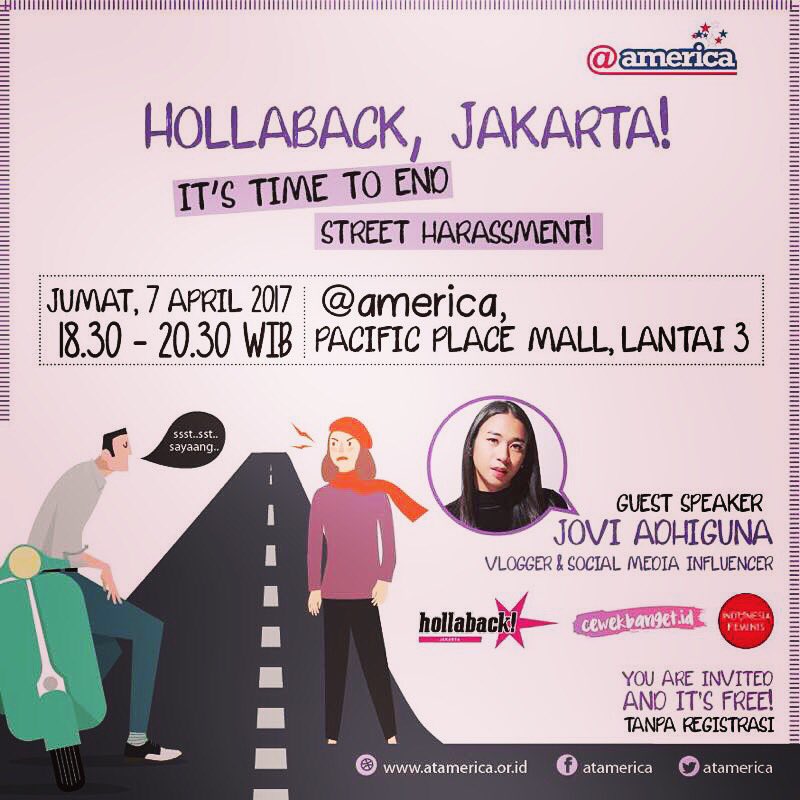
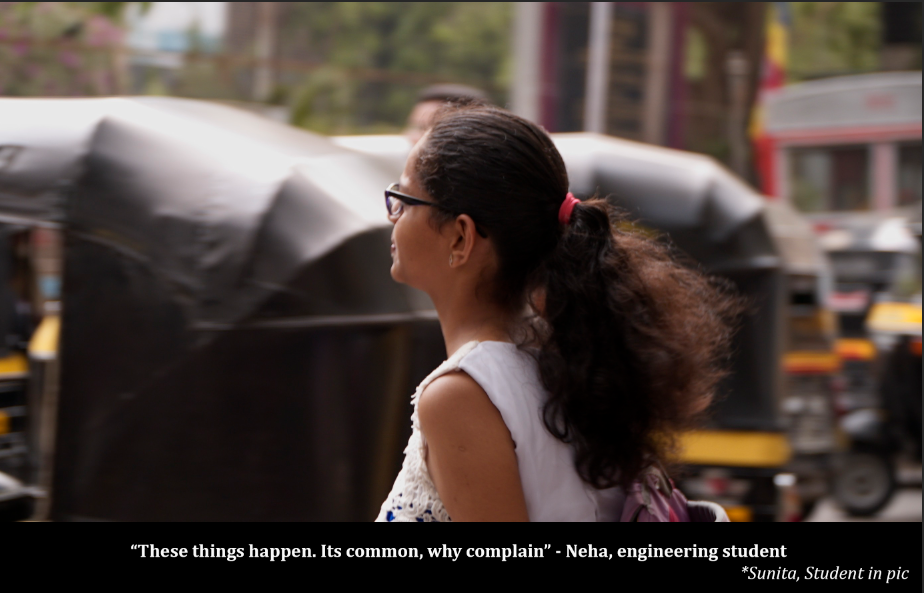
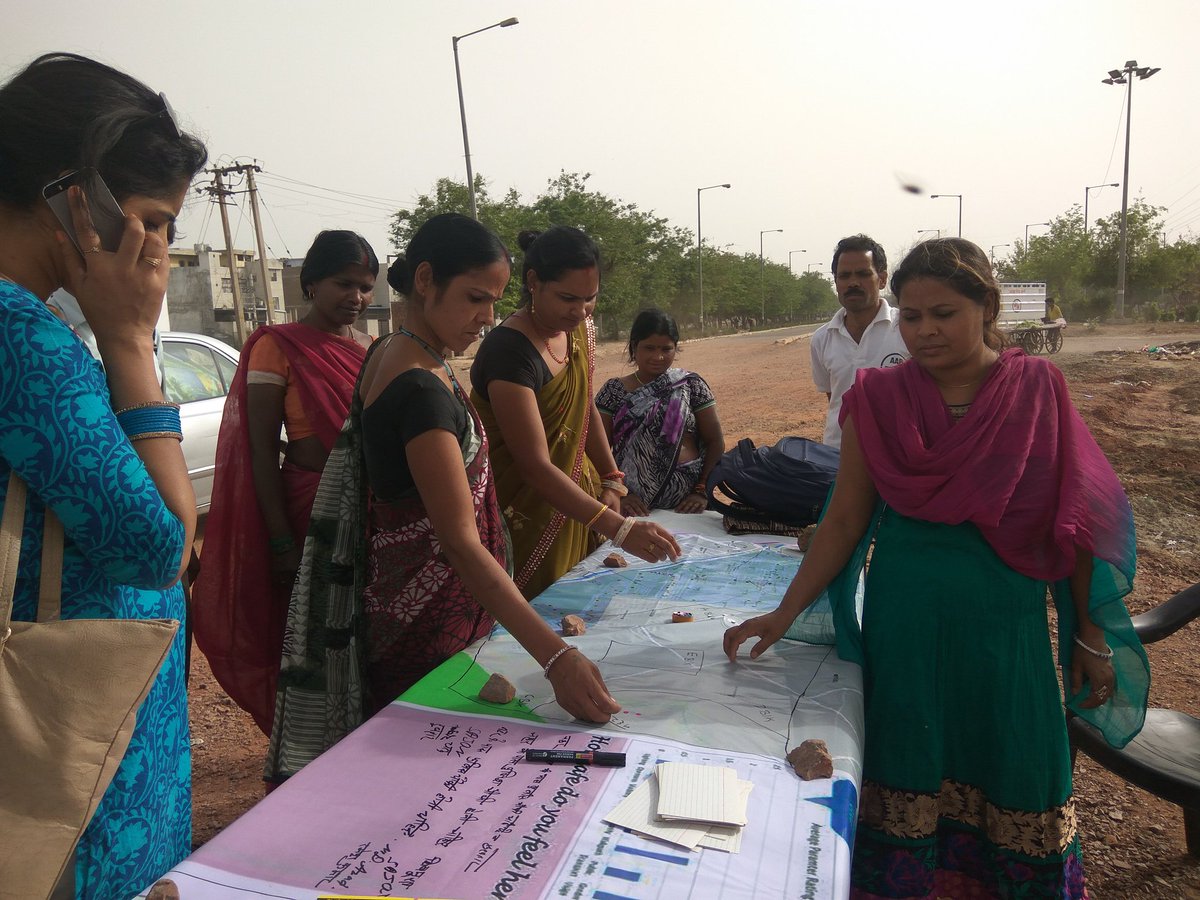
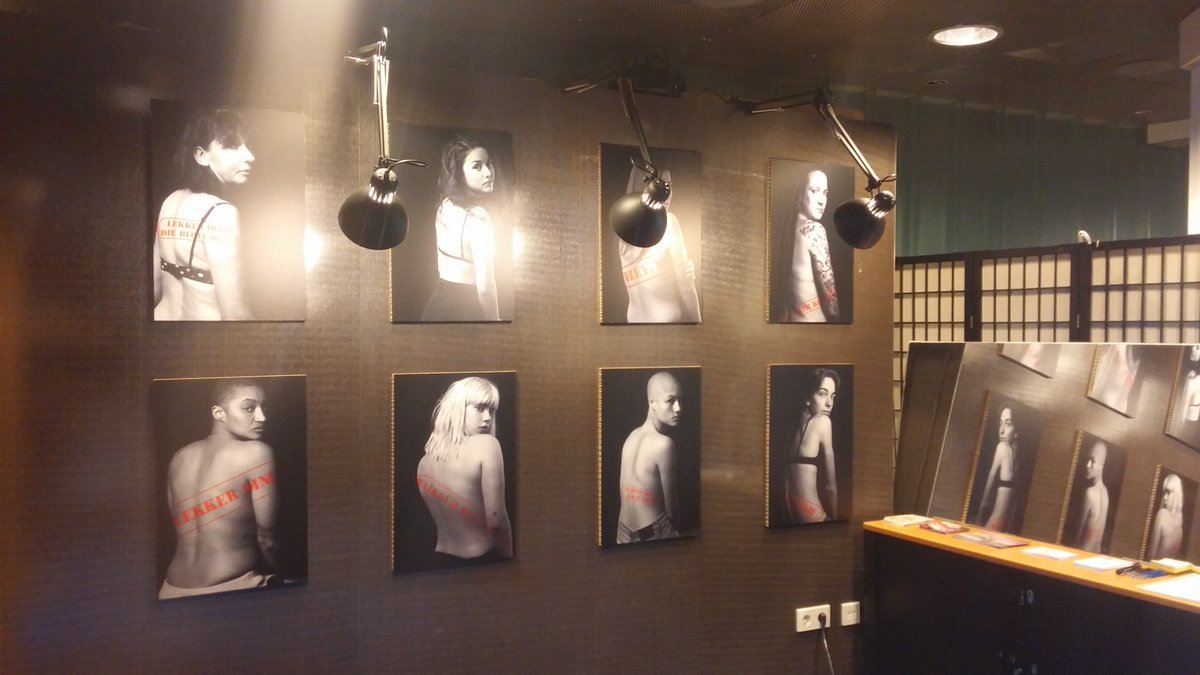
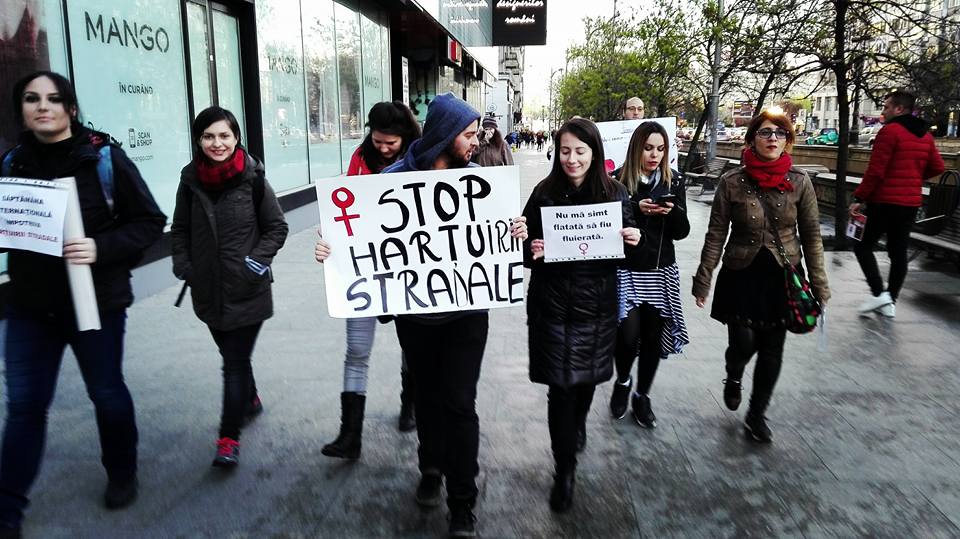
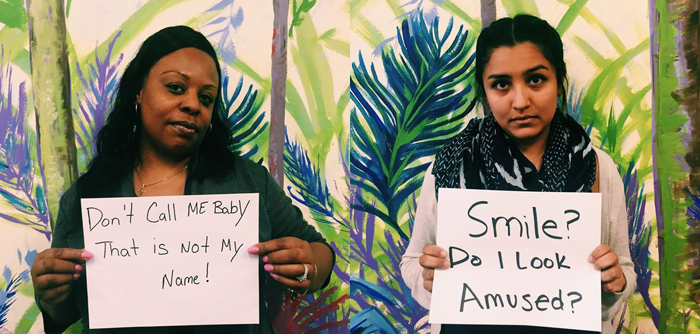
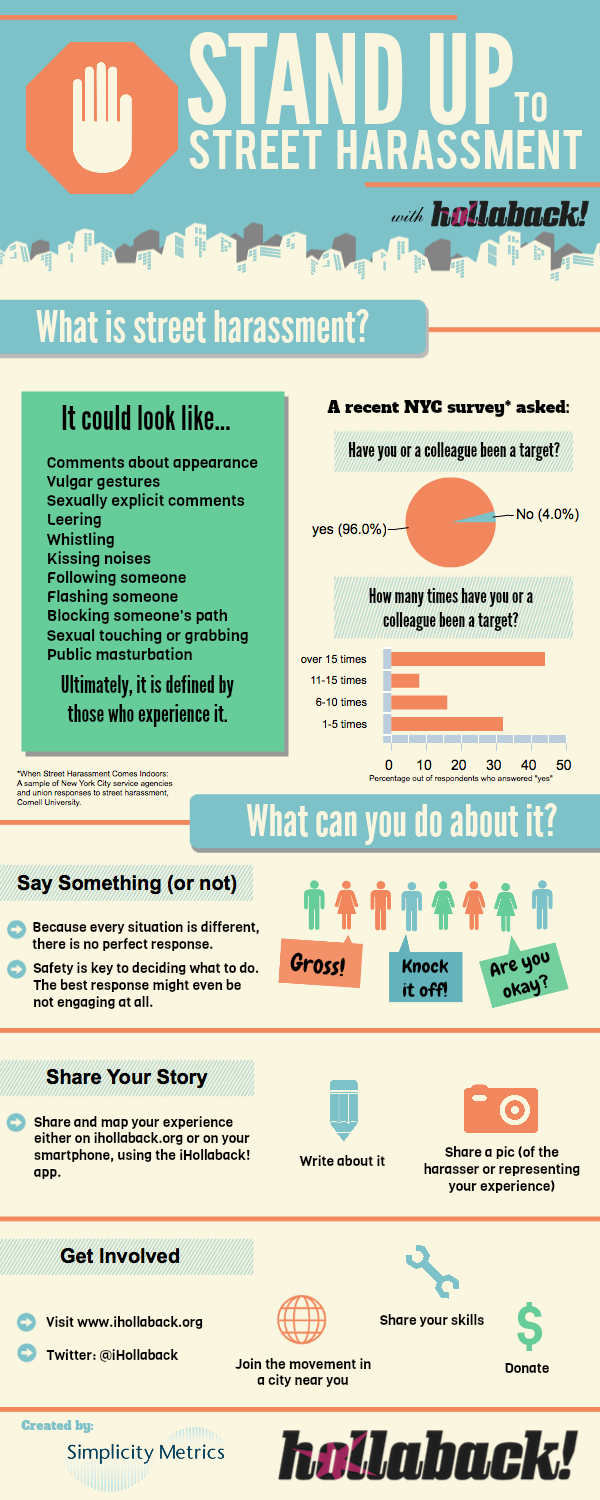 By Sofia DiPasquale
By Sofia DiPasquale